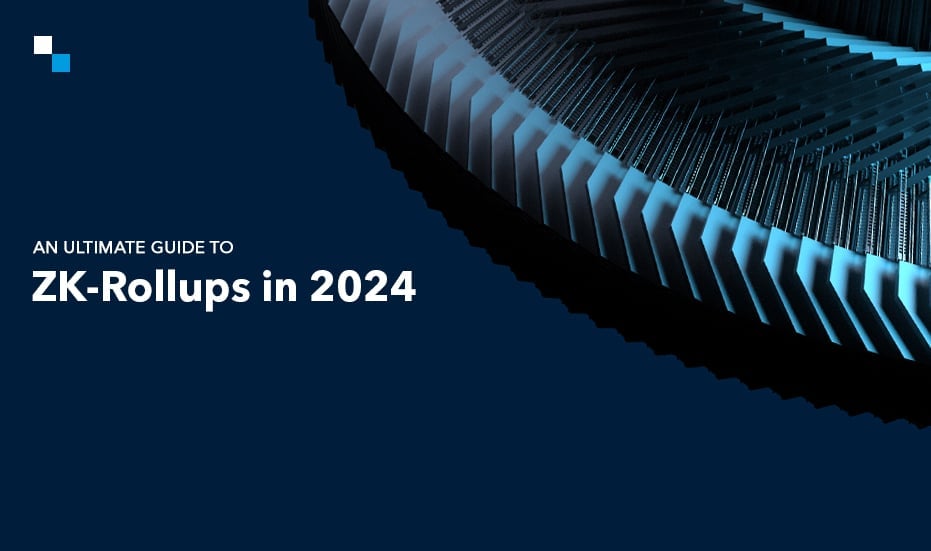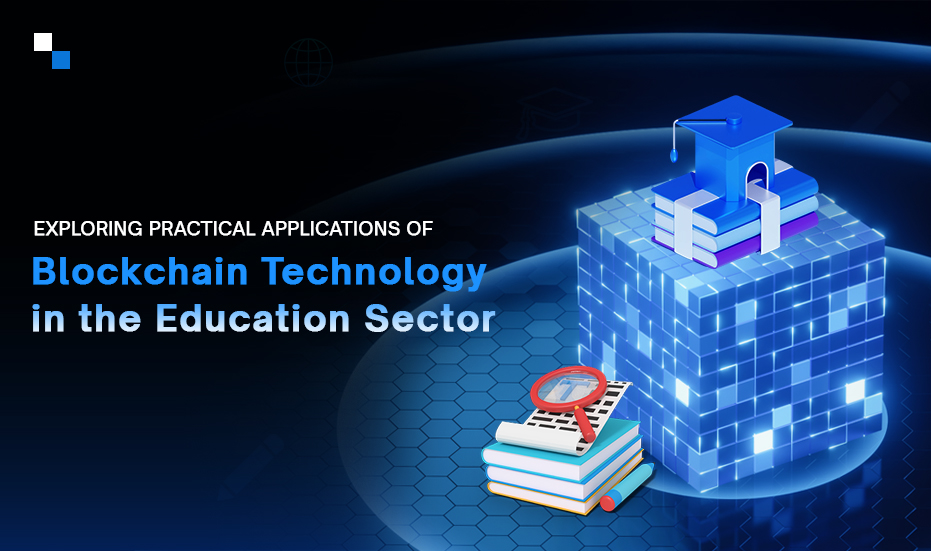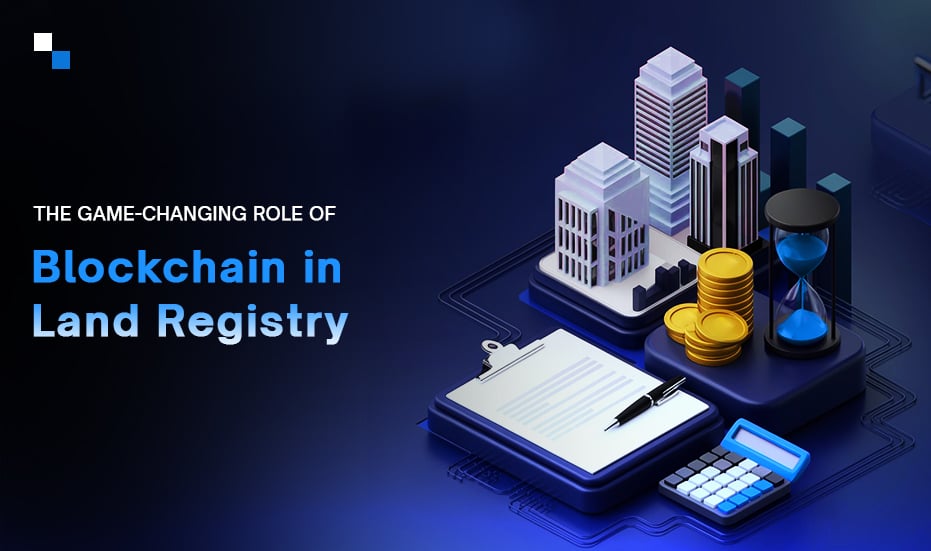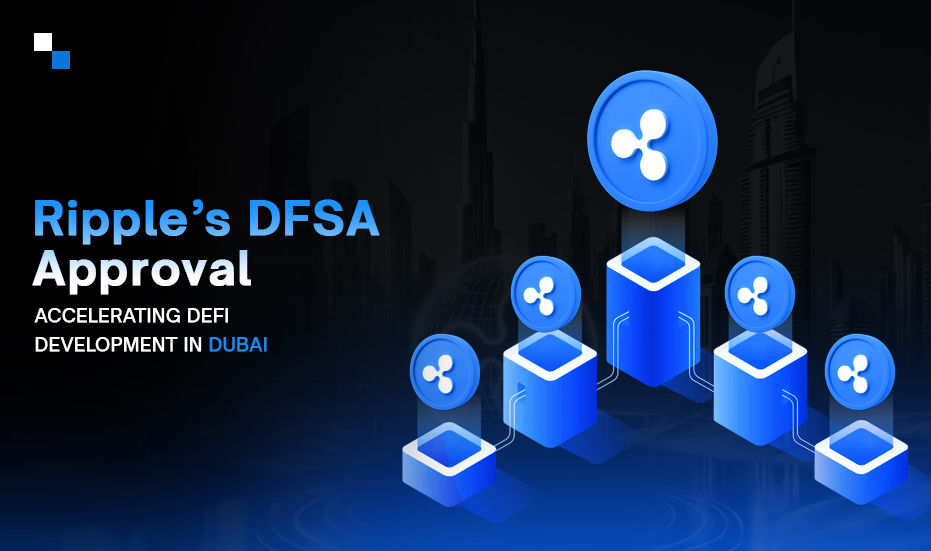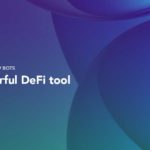
Jito Solana MEV bot Development: A Comprehensive Guide
June 25, 2024
Crypto-Friendly Banking Solutions: What Features Do Customers Crave For?
June 26, 2024Ethereum is dealing with over 150,000 pending transactions at the time of writing this post which highlights its ongoing scalability issues. The current backlog of transactions and high gas fees poses a significant threat to the network’s stability and usability. Addressing these scalability challenges is imperative to ensure Ethereum’s continued growth and adoption. Over the last few years, various layer-2 solutions such as state channels, sidechains, and rollups have emerged as a potential remedy to tackle scalability limitations.
Among them, zero-knowledge rollups have garnered significant attention for their ability to enhance Ethereum’s scalability and cost-efficiency while maintaining security and decentralization. Vitalik Buterin, co-founder of Ethereum, has recently shared a post on X where he predicted a future dominated by zk rollups. His vision proposes a transition within a decade where all rollups will leverage zero-knowledge proofs for final state verification on the Ethereum mainchain.

Src: https://rb.gy/xrandk
Table of Contents
- What are ZK-rollups?
- Variations in ZK-rollups Implementations
- How do ZK-rollups Work?
- ZK-rollups vs Optimistic rollups: The Difference
- ZK-rollups: Real-Life Use Cases & Applications Across Diverse Industries
- Top 5 ZK-rollups Projects in 2024
- How to Evaluate the ROI of Integrating ZK-Proofs in your Products?
- Why Must Businesses Choose Antier for Integrating ZK-Proofs in their Products?
- Conclusion
What are ZK-rollups?
ZK-rollups are an innovative layer-2 scaling solution designed to enhance blockchain scalability by offloading computation and state storage to off-chain networks while maintaining transaction data on-chain. This dual approach significantly increases transaction throughput and reduces costs.
The core mechanism of zk rollups involves processing transactions off-chain and then summarizing them into a single batch that is posted on-chain. The integrity of these batches is confirmed through zero-knowledge proofs, which provide cryptographic validation of the off-chain computations without disclosing the underlying information.
Variations in ZK-rollups Implementations
Here are some key areas where zk rollups can differ in their implementation:
Proof System
This refers to the specific type of zk-proof used for validity proofs. The two most common options are:
- zk-SNARKs(Succinct Non-interactive Argument of Knowledge): zk-SNARKs are highly compact & efficient for verification and suitable for resource-constrained environments despite their computational cost during generation.
- zk-STARKs(Succinct Transparent Argument of Knowledge): zk-STARKs offer more transparency in the proof generation process compared to zk-SNARKs. However, zk-STARKs verification can be slightly slower than zk-SNARKs.
Examples: Loopring(zk-SNARKs) and StarkNet(zk-STARKs)
Data Availability Solution
ZK rollups rely on the base layer for security but need a way to ensure the complete transaction data is available in case of disputes. Here are some approaches:
- DSNs(Decentralized Storage Networks): Platforms like IPFS(InterPlanetary File System) can be used to store the complete transaction data off-chain in a decentralized manner.
- DACs(Data Availability Committees): A committee of validators can be responsible for storing and verifying the availability of transaction data.
- Validium: This is a variation where only the state changes and proofs are stored on-chain with complete transaction data potentially sampled on demand.
Examples: Scroll(DSNs), Immutable X(DACs), and StarkWare(Validium)
Circuit Design
This refers to how the computations within the zk rollups are structured and represented for proof generation. Some categories are:
- Account-Based: Maintains user accounts and balances similar to the Ethereum model.
- UTXO-Based (Unspent Transaction Output): Inspired by Bitcoin, these rollups track unspent outputs rather than account balances.
- ZKVM (Zero-Knowledge Virtual Machine): This approach utilizes a custom VM specifically designed for efficient zk-proof generation.
Examples: Loopring(Account-based), dYdX(UTXO-based), and Polygon zkEVM(ZKVM).
How do ZK-rollups Work?
The core infrastructure of zk rollups consists of two main components: on-chain contracts and the off-chain virtual machine.
- On-Chain Contracts: These are smart contracts deployed on the layer-1 blockchain that manage the zk rollup protocol. The primary contract monitors state updates, tracks deposits, and stores rollup blocks. Additionally, a verifier contract is responsible for validating the zero-knowledge proofs submitted by the rollup operators.
- Off-Chain Virtual Machine: This off-chain execution environment handles the computation and storage of transactions. Transactions are executed and states are stored on a separate VM independent of the Ethereum Virtual Machine. The validity proofs generated off-chain are later verified on-chain to ensure the correctness of state transitions.
Execution Process
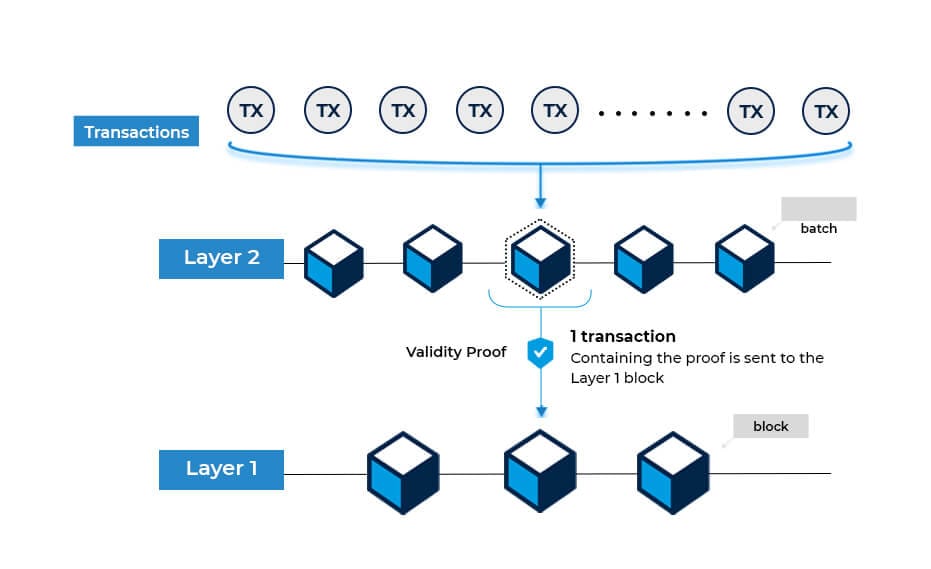
The execution process of zk rollups involves the following three steps:
- Sequencing: Layer-2 operators, known as sequencers, collect and execute transactions off-chain and bundle them into batches. These batches are then submitted to the zk rollup smart contract on the layer-1 blockchain.
- Proof Generation: For each batch of transactions, a validity proof, either a zk-SNARK or zk-STARK, is generated. This proof mathematically demonstrates that the batched transactions are valid without revealing the transaction data.
- Proof Verification: The zk-SNARK or zk-STARK is submitted to the layer-1 smart contract for verification. The contract verifies the proof and, if valid, updates the state root on the blockchain while ensuring that the state transitions proposed by the rollup are accurate and secure.

ZK-Rollups vs Optimistic Rollups: The Difference
Though there are several aspects to articulate the differentiation between zk rollups and optimistic rollups, here are some crucial ones:
- Security Assumptions
ZK rollups operate under a “zero-knowledge” assumption. Zero-knowledge proofs demonstrate transaction validity through cryptography without disclosing transaction details. This ensures immediate fraud detection and fast finality.
Optimistic rollups function under an “optimistic” assumption. They initially assume all transactions are valid but have a challenging period for dispute resolution. This can lead to slower finality compared to zk rollups.
- Proofs
ZK-rollups rely on validity proofs (zk-SNARKs or zk-STARKs) to demonstrate the correctness of the state transition. These proofs are verifiable on-chain and enable immediate fraud detection.
Optimistic rollups rely on fraud proofs where anyone can dispute a transaction’s validity. If a dispute arises, a fraud proof needs to be submitted to the main chain for verification, which can be a time-consuming process.
- Data Availability
ZK rollups store only the validity proofs on the main chain, with the complete transaction data potentially stored off-chain using DSNs or DACs.
Optimistic rollups require the entire transaction data to be available on-chain for the challenge period which leads to higher on-chain storage requirements.
- Privacy
ZK rollups offer a higher degree of privacy since the validity proofs don’t reveal the specifics of the transactions. However, some information like transaction value might still be visible.
Optimistic rollups reveal all transaction data on-chain during the challenge period which makes it less private.
- Scalability
ZK rollups achieve high transaction throughput due to the reliance on succinct validity proofs for verification on the main chain.
Optimistic rollups may have slightly lower scalability compared to zk rollups as they potentially require more data to be stored on-chain during the challenge period.
- Complexity
ZK rollups can be more complex to develop due to the need for advanced cryptographic techniques for proof generation.
Optimistic rollups are considered simpler to develop compared to zk-rollups.
Tabular View
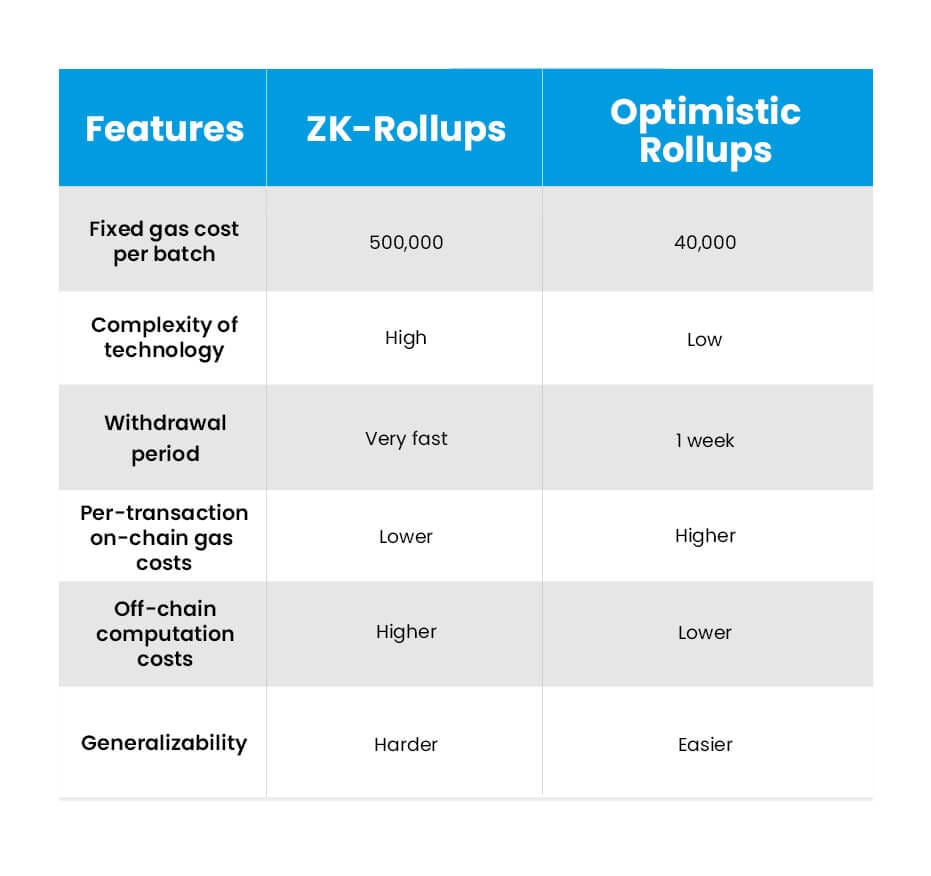
ZK-Rollups: Real-Life Use Cases & Applications Across Diverse Industries
By enabling faster, cheaper, and more secure transactions off-chain, zk rollups unlock a vast array of applications across various industries. Here’s a deep dive into their potential along with real-world examples:
Identity Management
- Challenge: Centralized identity management systems raise privacy concerns and lack user control. KYC(Know Your Customer) and AML(Anti-Money Laundering) processes are essential for many industries but often cumbersome.
- Solution: ZK rollup solutions can streamline these processes by allowing users to prove their identity or compliance without revealing sensitive information while maintaining privacy & ensuring regulatory adherence.
- Real-Life Example: Several startups are developing decentralized identity solutions powered by zk rollups. KYC-Chain uses blockchain to streamline KYC processes. Integrating zk rollups can enable privacy-preserving identity checks and reduce the risk of data breaches.
NFTs
- Challenge: Minting and trading NFTs on Ethereum can be expensive and time-consuming which limits the accessibility and growth of the NFT market. Moreover, blockchain-based gaming often involves frequent transactions, such as buying, selling, or trading in-game assets.
- Solution: ZK rollups enable efficient NFT minting and trading with significantly lower fees. This opens doors for broader adoption of NFTs in areas like ticketing, collectibles, and digital art.
- Real-Life Example: Immutable X, a leading NFT marketplace, utilizes zk-SNARKs in its zk rollup to offer fast and affordable NFT minting and trading experiences.
DeFi
- Challenge: Current DeFi protocols on Ethereum suffer from high transaction fees and slow processing times which hinders its user experience and adoption. Additionally, traditional cross-border payments involve multiple intermediaries which leads to delays and high costs.
- Solution: DeFi platforms benefit from zk rollups by managing high volumes of microtransactions efficiently. This is particularly useful for AMMs, lending platforms, and yield farming protocols that require numerous transactions to operate smoothly. ZK-rollups solutions can enable high-throughput, low-cost trading, lending, borrowing, and other DeFi functionalities.
- Real-Life Example: Loopring, a decentralized exchange, leverages Loopring zkRollup to facilitate fast and cost-effective trading of digital assets.
Supply Chain Management
- Challenge: Traditional supply chains lack transparency and traceability which makes it difficult to track product provenance and combat counterfeiting.
- Solution: ZK rollups can be used to securely record and verify product movement across the supply chain. Validity proofs ensure data integrity while maintaining confidentiality of sensitive information. Each transaction within a supply chain can be processed off-chain and periodically recorded on-chain while ensuring that the entire history of a product is secure and tamper-proof.
- Real-Life Example: Morpheus.Network, a supply chain platform, uses blockchain technology to improve supply chain visibility. By integrating zk rollups, the platform can handle more transactions per second and ensure real-time tracking of goods without compromising on security
Healthcare
- Challenge: Ensuring the privacy and security of patient data is paramount in healthcare, given the sensitivity of medical information and stringent regulatory requirements.
- Applications: ZK-rollup solutions can facilitate this by enabling the secure transfer of large volumes of data without burdening the blockchain with every single transaction. This maintains patient privacy while ensuring data integrity.
- Example: MedicalChain uses blockchain to secure medical records. A zk-rollups implementation can enhance this by allowing numerous healthcare providers to access and update patient records efficiently while improving patient care coordination without compromising data security.
Top 5 ZK-rollups Projects in 2024
1. Starknet

Starknet is one of the best zk rollups development projects built using STARK (Scalable Transparent ARguments of Knowledge) cryptographic proofs to address Ethereum’s scalability challenges.
Key Highlights
- While processing transactions off-chain, Starknet maintains Ethereum’s security by submitting cryptographic proofs of their validity back to the Ethereum mainnet for verification.
- Starknet maintains full compatibility with Ethereum smart contracts while allowing seamless integration with existing Ethereum-based applications.
- Starknet introduces native account abstraction, a feature that grants developers greater control over account behavior.
- Starknet uses Cairo, a programming language designed for writing provable programs efficiently. This allows developers to create and deploy scalable dApps on Starknet.
2. Polygon zkEVM

Polygon zkEVM is a decentralized layer-2 scaling solution for the Ethereum network that leverages zero-knowledge rollup technology to provide a seamless, efficient, and cost-effective platform for executing Ethereum’s transactions and smart contracts
Key Highlights
- Developers can deploy their existing EVM-compatible smart contracts onto Polygon zkEVM without any code changes.
- Polygon zkEVM inherits Ethereum’s robust security framework to ensure that all transactions and smart contracts are secure.
- With frequent validity proofs, Polygon zkEVM ensures rapid transaction finality while providing a fast and efficient user experience.
- Polygon zkEVM is ideally suited for developing a variety of applications including NFTs, new gaming technologies, and enterprise applications.
3. zkSync
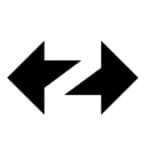
zkSync Era, developed by Matter Labs, is a name among the top zk-rollups projects. It addresses critical issues such as scalability and high transaction fees while providing a robust platform for dApps development.
Key Highlights
- zkSync Era is the world’s first EVM-compatible zk-rollup solution that enables seamless integration with existing Ethereum-based smart contracts and tools.
- zkSync Era employs advanced zero-knowledge proofs, specifically recursive zk-SNARKs, to batch transactions off-chain.
- Unlike older blockchains, zkSync Era natively integrates account abstraction similar to ERC-4337.
- Existing Ethereum dApps can be migrated to zkSync Era with minimal modifications.
4. Loopring

Loopring is a decentralized protocol built on the Ethereum blockchain designed to facilitate high-throughput, low-cost trading and payment services. It is Ethereum’s first zk rollup layer-2 solution.
Key Highlights
- Loopring facilitates quick and cost-effective cross-border payments, providing a competitive alternative to traditional financial systems.
- Loopring is a non-custodial protocol which means that users can retain control of their assets at all times. This reduces counterparty risk and enhances security for end-users.
- Loopring’s scalability and low fees make it ideal for DEXs looking to support high-frequency trading and large transaction volumes.
- Loopring’s architecture ensures that businesses can scale their operations without facing the bottlenecks associated with traditional blockchain transactions.
5. Aztec

Aztec Network is a fully programmable privacy-first zk-rollup development solution on Ethereum. It allows developers to create dApps with built-in encryption and scalability while addressing the current visibility and privacy concerns on Ethereum.
Key Highlights
- Aztec Network employs a unique privacy-first UTXO architecture which ensures that all transaction details are encrypted and only visible to authorized parties.
- Developers can leverage Aztec’s interface to build complex privacy-preserving applications without needing deep expertise in cryptography.
- Aztec employs a network of sequencers who stake tokens to aggregate transactions into blocks.
- Aztec provides a secure and private environment for executing operations while ensuring that sensitive information is protected against unauthorized access.
How to Evaluate the ROI of Integrating ZK-Proofs in your Products?
With data privacy and security being top priorities today, leveraging zero-knowledge proofs not only protects your product but also provides a significant competitive edge. However, for businesses exploring zk-proofs integration, evaluating the ROI is crucial for making informed decisions. Here are some noteworhty factors to consider to identify the ROI of integrating zk-proofs in your product:
Identify Specific Use Cases
Begin by identifying the specific use cases within your business where zero-knowledge proofs can be applied. For instance, in financial services, zk-proofs can be used to verify transactions without disclosing amounts, parties involved, or transaction details.
Cost Analysis
Evaluate the costs associated with implementing zk-proofs.
- Development Costs: Costs for developing and integrating zero-knowledge protocols into your existing blockchain infrastructure.
- Operational Costs: Ongoing costs for maintaining and supporting zk-proofs-enabled systems.
- Training Costs: Expenses related to training your team to effectively use and manage zero-knowledge rollup technology.
Quantify the Benefits
Identify the benefits zero-knowledge proofs bring to your organization.
- Cost Savings: Reduced costs due to lower data breach risks and compliance penalties.
- Revenue Growth: Potential for new revenue streams through enhanced product offerings and improved customer trust.
- Efficiency Gains: Improved operational efficiency due to streamlined processes and reduced need for data validation efforts.
Risk Mitigation Analysis
Incorporate risk mitigation into your ROI evaluation.
- Security Risks: Assess how zk-proofs mitigate security risks and the financial impact of potential data breaches.
- Compliance Risks: Evaluate how zk-proofs help in adhering to regulatory requirements while thus avoiding fines and sanctions.
Performance Metrics
Define clear performance metrics to measure the impact of ZKPs.
- Transaction Speed: Monitor any changes in transaction speed and efficiency.
- Error Rates: Track the reduction in error rates and data discrepancies.
- Customer Satisfaction: Gauge customer satisfaction through feedback and retention rates.
Why Businesses Must Choose Antier for Integrating ZK-Proofs in Their Products?
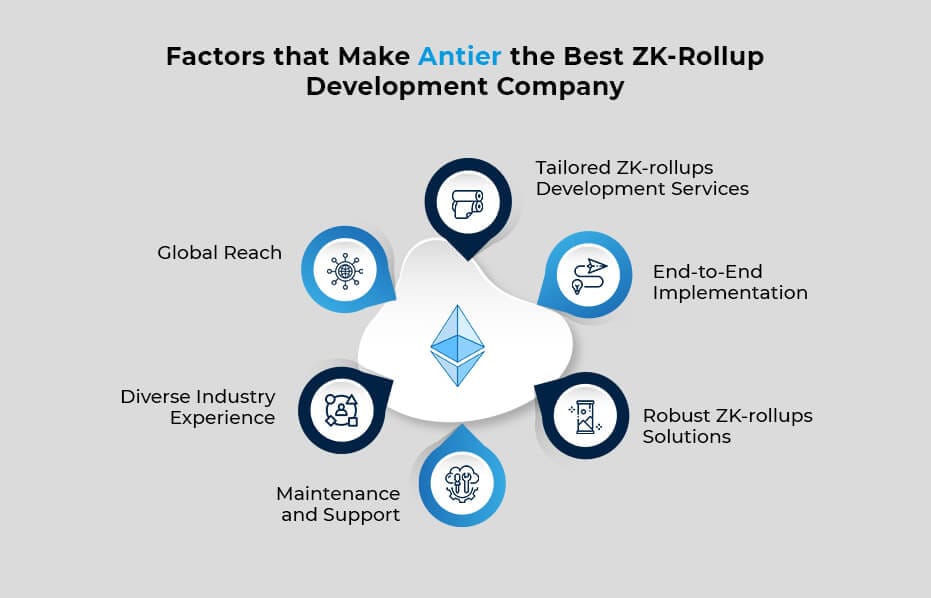
Here’s why Antier, a leading zk rollup development company, is the optimal choice for businesses looking to integrate zk-proofs into their products:
- Tailored zk rollup development services: Antier provides customized zk-rollup development services that cater to the specific needs of your business.
- End-to-End Implementation: From conceptualization to deployment, Antier handles all aspects of zk rollup implementation while ensuring a smooth and efficient process.
- Robust zk-rollups solutions: Antier’s zk rollups solutions are designed to handle high transaction volumes, significantly reducing network congestion and transaction costs.
- Maintenance and Support: Post-implementation, Antier provides continuous support and maintenance to ensure your zk-rollup solutions remain effective and up-to-date.
- Diverse Industry Experience: Antier has implemented zk-rollup solutions across various industries including finance, healthcare, supply chain, and more.
- Global Reach: With a global client base, Antier has a deep understanding of diverse market needs and regulatory requirements.

Conclusion
The future of zk rollups appears exceedingly promising and is poised to redefine the landscape of blockchain scalability and efficiency. As businesses increasingly adopt decentralized solutions, zk rollups offer a compelling pathway to enhance transaction throughput and reduce costs while maintaining robust security through zero-knowledge proofs. Investing in zk rollups development services in 2024 represents a strategic opportunity for businesses to future-proof their operations amidst evolving technological landscapes.
